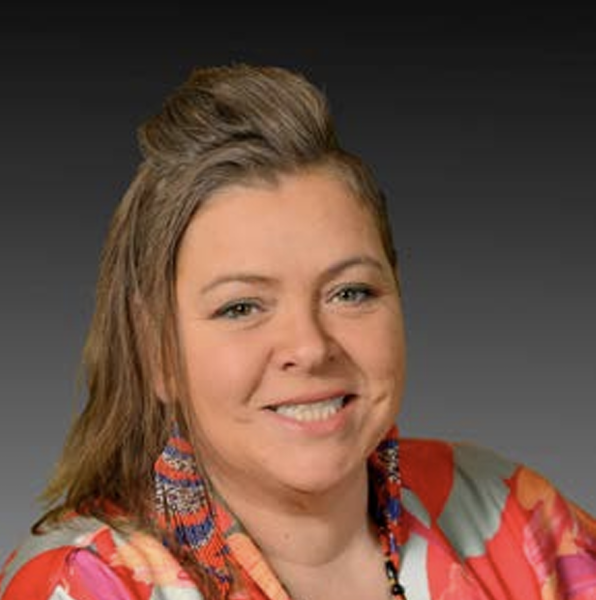
Board of Directors
Claudette Dumont Smith
Co-Chair
-
Claudette Dumont-Smith is an Algonquin woman from Kitigan Zibi, Quebec. She holds a Bachelor of Science in Nursing from the University of Québec, and a master’s degree in public administration from Queen’s University. Claudette holds an Honorary Doctor of Laws degree from the University of Guelph. For more than three decades Claudette has worked to enhance Indigenous health across Canada, and to reduce violence against Indigenous women and girls. As a registered nurse, she has held executive positions at multiple national organizations that specialize in the health of Indigenous women and children. Claudette was the Executive Director of the Native Women’s Association of Canada (NWAC) until her retirement in 2016.
SKILLS: Governance, First Nations/Quebec perspective, Administration, Leadership, Nursing
Christa BigCanoe
Co-Chair
-
Christa Big Canoe is an Anishinabek woman, mother and lawyer. She is from Georgina Island First Nation. She has been the Legal Director of Aboriginal Legal Services since 2011. She took a 2.5-year leave-of-absence to be senior advisor and then Lead the Commission Counsel to the National Inquiry into Missing and Murdered Indigenous Women and Girls. Christa has been before all levels of court, including the Supreme Court of Canada. She represents families at Inquests and has been before various tribunals providing Indigenous perspective and representation. She passionately advocates for Indigenous women and children in multiple forums and legal processes.
SKILLS: Law, Anishinaabe/ Iroquois Perspective, MMIWG, Governance, Administration
Madeleine Redfern
Treasurer
-
Madeleine is from Iqaluit, Nunavut, and she’s a graduate of the Akitsiraq Law School, holding an LLB from the University of Victoria. She was the first Inuk to be given a Supreme Court of Canada clerkship. As an Indigenous businesswoman and a strong social advocate for transformative initiatives, Madeleine has over 35 years of experience in governance and volunteering with Indigenous organizations, including, but not limited to, the Inuit Non-Profit Housing Corporation and the Tungasuvvingat Inuit Community Centre. Madeline is one of the founding members of Wabano Aboriginal Health Centre and Inuit Head Start in Ottawa. She was also the executive director of the Qikiqtani Truth Commission.
SKILLS: Law, Inuit Perspective, Governance, Administration, Leadership
Nicole Rabbit
Secretary
-
Saipiaakii( Charging the Enemy Woman) is a proud member of the Maamioiyiiksi (Fish Eater clan) from the Blood Tribe in the Treaty 7 territory. As a mother, grandmother and lifelong advocate for indigenous communities, she has dedicated much of her career to education, advocacy and creating equitable opportunities for marginalized groups. Nicole graduated as Valedictorian from the University of Saskatchewan with a Bachelor of Education. She has over 20 years teaching experience and assumed the role of principalship as her last education assignment. Nicole specialized in Special Education, has coordinated curriculum, managed, and supported staff, and worked diligently to create safe and inclusive learning environments for students of all backgrounds. In addition to her work and education, Nicole is deeply committed to social justice. As a survivor of forced and coerced sterilization, and executive board member for the Survivor Circle for Reproductive Justice, she advocates for the rights and well-being of the indigenous people particularly in the realm of reproductive health through this role. She continues to elevate, indigenous voices and champion causes that seek to address the unique challenges faced by her community. A fierce advocate for indigenous people. Nicole is passionate about uplifting her community and ensuring that the future generations have the tools and support they need to thrive.
SKILLS: Lived-Experience of forced sterilization, Blackfoot/ First Nations perspective, Administration, Culture
Mary Jane Gray
Board Member
-
Jane has held positions at the community, regional and national level in an active health career spanning 25 years advocating for improvements in First Nations health. She is a strong promoter of First Nation’s self-determination in the area of research. She considers herself a Data Warrior and upholds the First Nations Principles of Ownership, Control, Access and Possession (OCAP). She dedicates and commits herself to improving the health status of First Nations through research.
SKILLS: Data sovereignty, First Nations/ Quebec/Maritime perspective, Governance, Administration, Nursing
Dr. Marlyn Cook
Board Member
-
Dr. Marlyn Cook is a member of the Misipawistik Cree Nation. She graduated as a nurse in 1975. Wanting to become a stronger advocate for health care for Indigenous people, she returned to university in 1980. Dr. Cook graduated from the Faculty of Medicine at the University of Manitoba, completed the Family Practice Residency Program in 1989, becoming the first First Nation women to graduate from Medicine in Manitoba. She has worked in many First Nation communities and has served on multiple boards and committees since then. Dr. Cook believes in our Ways of Healing, focusing on all aspects of the person- spiritual, mental, physical, and emotional. Marlyn is a sun dancer, pipe carrier and sweat lodge keeper. She is the author of Walking the Red Road for Healing the Seventh Daughter.
SKILLS: Healthcare, Culture, Midwifery, Healing Fund development, First Nations/Cree perspective
Leanne Kelly
Board Member
-
Metis/Cree cis-gendered woman originally from Saskatchewan’s Qu’appelle Valley, currently living and working on the unceded and occupied territory of the Coast Salish people of Vancouver Island. She has worked in First Nations community and public health for over 30 years in Saskatchewan and British Columbia. Currently she is an Assistant Teaching Professor with University of Victoria, School of Nursing and a PhD candidate. Her work continues to be informed by her strong relationships with local First Nations communities, anti-racist pedagogy and intersectionality of complex community systems which influence health outcomes.
SKILLS: Healthcare, Nursing, Education
Heather Bear
Board Member
-
Heather Bear is from the Chacachas Treaty Nation in Treaty 4 territory. With a deep understanding of Treaty rights and Indigenous history, she addresses the issues impacting First Nations women, children, and families. Heather dedicated 7 years of her leadership as Headwoman for the Nation of Ochapowace, before taking on the esteemed role of 4th Vice Chief of the Federation of Sovereign Indigenous Nations for 3 terms where she advocated for protection and promotion of treaty and inherent rights. Heather is a devoted mother of 4 and a loving Kokum to 7 grandchildren. She continues to reside on the Ochapowace Nation, where she inspires others through her commitment to her heritage and community.
SKILLS: First Nations Sovereignty, Protection and promotion of Treaty and Inherent RIghts








